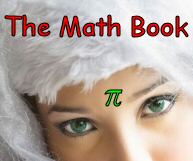Tuesday, November 21, 2006
Book of Spells of Serpents
 The Book of Spells of Serpents, a lost work ascribed to St. Paul, would be considered part of the New Testament apocrypha, as it appears in a 6th century list of works that were considered non-canonical, but no known text has survived, although it has been referenced numerous times in other non-canonical ancient books.
The Book of Spells of Serpents, a lost work ascribed to St. Paul, would be considered part of the New Testament apocrypha, as it appears in a 6th century list of works that were considered non-canonical, but no known text has survived, although it has been referenced numerous times in other non-canonical ancient books. From its descriptions, the book appears to be an anti-Ophite work, supporting the orthodox position that the serpent in the Garden of Eden was evil, rather than the Ophites' position that the serpent was a hero who tried to teach Adam and Eve in order to let them escape what the Ophites saw as an evil world created by a demiurge.[1] According to the early church fathers,the work described the beguiling nature of the serpent, and its crafty use of spells, and clever oratory skills, to obtain favour in the Garden and to manipulate the first man for its own gain: the serpent was so wily that it routinely confused Adam about the instructions God gave him, eventually leading to his expulsion.
However, as this is the report of those opposed to the Ophites' views, this description of the text may be somewhat misleading. For example, it was also said that the text briefly touches on the wisdom of the Serpent, and warnings he communicated to Adam, and to Eve, about God's devious nature and fearful admonitions against disobedience. This point of view supported that of the Ophites, and contrasts greatly with the prior description that puts the serpent as the villainous trickster.
References:
^ For more about Ophite theology, see Ophites. See also Ophite Diagrams, Lost New Testament Apocrypha, Non-canonical Pauline Epistles.
However, you buck this trend by simply holding on to anything that falls out of the lap of greatness onto the carpet of lost crumbs, and I salute you. I have argued against Wikipedia (it's not all good) on my own weblog... if you're interested, I would be proud if you read it.
The article written about him was deleted because he was deemed "fringy" and "non-notable". Yet, Joseph E. Yahuda spent 30 years of his life researching languages and though he is not an officially recognized linguist, his academic contributions should nonetheless be known to people.
Here is the link from the deletion log:
http://en.wikipedia.org/wiki/
Wikipedia:Articles_for_deletion/
Joseph_E._Yahuda
The article has been deleted, but I am hoping that you would give Joseph E. Yahuda a place in your blog even if his linguistic theories are ultimately false. I too believe that knowledge is important irrespective if it is based on notable or non-notable people, events, etc.
Here is Yahuda's background info:
Joseph Ezekiel Yahuda (born on July 29, 1900 in Jerusalem and died in 1995 in Westcott, Surrey, England) was a British lawyer, freelance author and self-styled linguist. He was the son of Isaac Benjamin Ezekiel Yahuda, a longtime researcher and linguist. In 1982, he published a book entitled ''Hebrew is Greek, Greek is Hebrew'', in which he proposed the theory that the Hebrew and Arabic languages are Greek in origin. He claimed that virtually all Hebrew and Arabic words could be "derived" from Greek ones. Examples of the etymologies he proposed are the following:
*''Israel'' < ''Is-ra-el'' < εις ('powerful') + ''ρα'' ('king') + ''ηλ'' ('sun')
*''Cain'' < ''Ka-en'' < Κα ην < Γα ην < Γήινος ('from the earth').
Published Works:
*Joseph E. Yahuda, ''Hebrew is Greek, Greek is Hebrew''. Oxford: Becket Publications, 1982.
*Joseph E. Yahuda, ''Law and Life According to Hebrew Thought''. New Series, Vol. 26, No. 3 (January 1936), pp. 283-292.
I also have a list of criticisms made towards Yahuda's 1982 work if you want. Leave a comment on my blog at hellenicempire@blogspot.com if you need anything else or if you agree/disagree about showing Joseph E. Yahuda on your blog.
Again, even if Yahuda's linguistic theories are incorrect, people deserve to know who he is. Realistically, there are a plethora of scholars who provided theories that were eventually proven false. Yet, their contributions are still recognized in Wikipedia. Of course, one reason why the Yahuda article was deleted was because "there was no evidence of his book having sold over 5000 copies." Another reason entails Yahuda not eliciting many Google hits. To me, these are not very good reasons.
Overall, I am happy to know that there is someone who actually cares about articles created on Wikipedia that are unfortunately deemed as "useless" even if they provide some positive contribution to humankind's collective knowledge.
Thank you for creating this blog and I hope you consider placing Joseph E. Yahuda in it.
Take care and good luck with everything.
I have studied bibical history. I have read some of the lost books of the Bible as they are called.
Interesting enough, most of the books earlier left out the Bible were done so because the people in charge of collecting them into one volume could not see their relationship to Jesus of the New Testament.
Aa=alpha/aleph.....k,l,... etc
<< Home
 The Wikipedia Knowledge Dump (WikiDumper.org)
The Wikipedia Knowledge Dump (WikiDumper.org)



